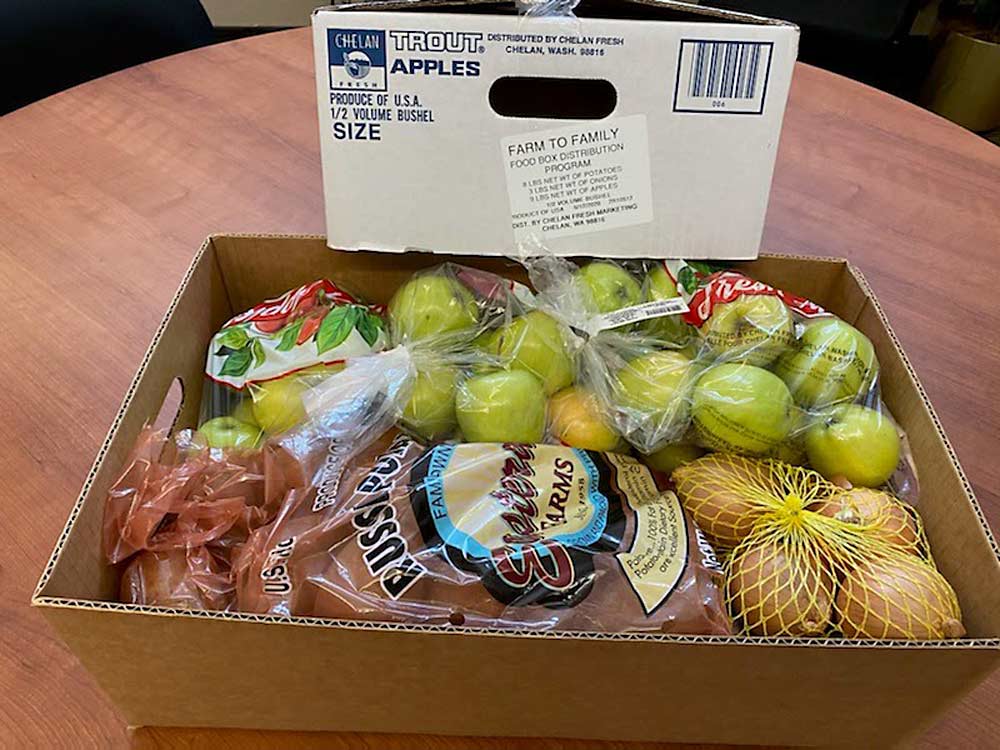
Thanks to a new U.S. Department of Agriculture program, two Washington apple shippers received funding support to make fruit and vegetable boxes for families in need.
“What this means is we can help people in need, through no fault of their own, and we can move fruit at a price that pays the bills in the warehouse,” said Bryan Peebles, export manager for Chelan Fresh. The company planned to ship its first boxes with 9 pounds of apples, 8 pounds of potatoes and 3 pounds of onions on Friday. Later in the season, boxes will include cherries and pears as well, he said.
Oneonta Starr Ranch Growers planned to start shipping boxes on Saturday containing 10 pounds each of apples and pears, along with 5 pounds of potatoes and onions, said CEO Brett Reasor.
Just the week before, the USDA awarded $1.2 billion in procurement contracts for the new program, which was announced in mid-April as part of the Families First Coronavirus Response Act, to purchase fresh produce, meat and dairy products from distributors who could set up a program themselves to provide the food, in single family-sized boxes, to nonprofit organizations that will distribute them.
When the program was announced, Reasor said he heard from distributors interested in buying his growers’ fruit, but the company decided that the intent of the program — to support farmers and families in need — could be better served by doing it themselves.
Fruit donations, of course, are a regular occurrence, but this new opportunity comes at a time when exports have slowed and the industry is struggling to move some varieties, Reasor and Peebles said.
“It helps people that need it, that’s the most important thing, and it helps us move varieties that aren’t moving as fast,” Peebles said. Having a home for that fruit should help the industry at large, he added.
Donating in boxes packed for quick distribution, rather than wholesale, and including multiple commodities is a new approach, but the companies quickly figured out how to put the program together, and boxes will soon be delivered regularly to local community group and nonprofits around the West. Having relationships with food banks from USDA trade mitigation impact programs helped efforts come together quickly, Reasor said.
“We can only afford to donate so much before the farmer goes broke,” Reasor said. “For us, I do feel it’s a true representation of the farmer to family approach and we’re blessed we got awarded.”
Chelan Fresh received a $1.5 million contract and Oneonta Starr Ranch received $2.5 million for the first phase of the program, which runs through the end of June. Both companies have bids out to continue providing boxes through the end of the year.
—by Kate Prengaman






Leave A Comment